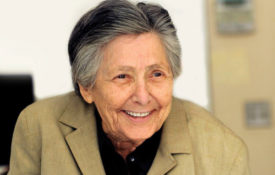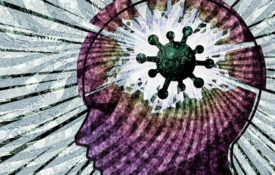-
What Kind of Training Does it Take to Become a World-Beating Athlete?
So you’re fired up from watching the action at the Tokyo Olympics, and ready to sign up your toddler for year-round travel judo so she can start racking up those 10,000 hours? Hold that thought. A new study published in Perspectives in Psychological Science wades into the long-standing debate about skill acquisition and talent development – a debate that, over the past two decades, has spilled out of psychology departments and elite sports institutes and into the broader public discourse. ...
-

Lila Gleitman (1929–2021), Renowned for Innovative Research on Language and Learning
Gleitman’s empirical work helped to unravel the mysteries of how children learn language.
-

New Research in Psychological Science
A sample of research on visual illusions, the use of gestures to communicate, well-being and altruism across nations, sensory encoding, empathy, semantic similarity and attention, the neuronal processing of faces, categorical perception, and a learning disability affecting the acquisition of arithmetic skills.
-
To Remember The Moment, Try Taking Fewer Photos
The sun is setting at the end of a gorgeous day at the beach — the light is just right, illuminating your kids' faces as they play in the waves. You reach for your phone because you want to remember this perfect moment. But before you do, here's a bit of surprising science that avid photo-takers need to know: Taking photos is not the perfect memory-retention tool you think it is. Snapping too many pictures could actually harm the brain's ability to retain memories, says Elizabeth Loftus, a psychological science professor at the University of California, Irvine. So you get the photo but kind of lose the memory.
-

Can Coping With COVID Make Things Worse?
How people respond to health threats can influence their own health and, when people are facing communal risks, even their community’s health. This interview explores how reducing fear may jeopardize health behaviors.
-

New Content From Current Directions in Psychological Science
A sample of articles on messaging to older adults, loyalty, mindfulness and motivation, semantic working memory and language, a new paradigm for conflict resolution, treatment of substance use disorders, stereotypes and social roles, self-control during adolescence.

